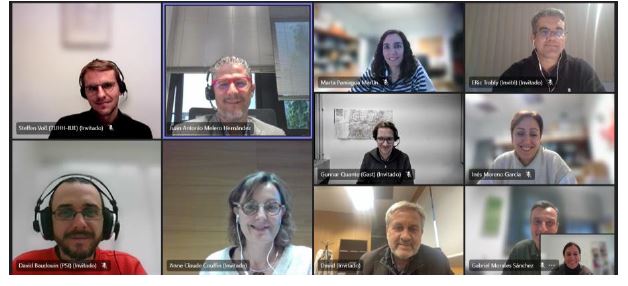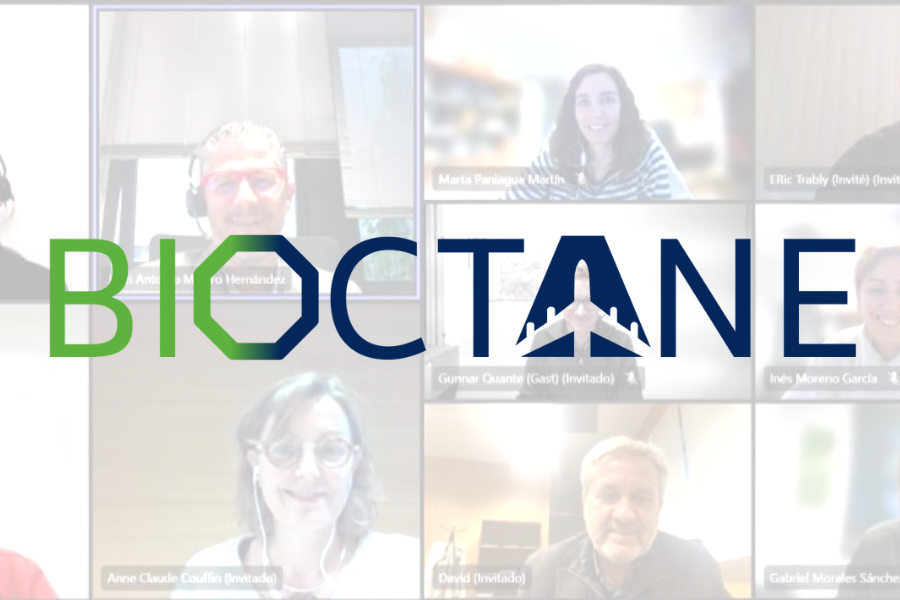EU Research project BIOCTANE develops novel pathway to produce sustainable aviation fuels
In November 2022, the BIOCTANE project was officially launched. Led by Fundacion IMDEA Energia (IMDEA) as the project coordinator, six research institutions partner to develop a new production pathway for sustainable aviation fuels.
During the kick-off meeting on 16. November the partner the European Commission’s representative of the project welcomed the partners and introduced the funding rules. Then, the partner institutions set the ground for the upcoming collaboration. The project with the full name “Synergetic integration of BIOteChnology and thermochemical CaTalysis for the cAscade coNvErsion of organic waste to jet-fuel” is going to develop and optimize an innovative process for the conversion of organic waste materials naturally characterized by a high-water content (e.g., food-waste, organic material from the food processing industry) into carbon-neutral market-ready drop-in jet-fuels. BIOCTANE will establish a novel pathway involving hybrid processes and multifunctional catalysts, contributing to implement sustainable, secure and competitive renewable energy technologies in Europe, boosting the use of advanced biofuels and with a direct impact on strategic areas like aviation transport.
Funded by the European Union’s Horizon Europe program, a grant of almost 3 million € will support research and development of various biochemical and thermocatalytic processes, which will be combined in a cascade process allowing the use of organic waste materials as feedstock.
Patricia Pizarro de Oro, Coordinator of the BIOCTANE project: “Our purpose in the BIOCTANE project is making aviation more sustainable using organic waste as resource. The entire team is highly motivated and very much looking forward to work hard towards new and insightful results.”
The project consortium consists of six members: Fundacion IMDEA Energy and University Rey Juan Carlos (URJC) from Spain, the Institut National De Recherche Pour L’Agriculture, L’Alimentation Et L’Environment (INRAE) from France, the Paul Scherrer Institute (PSI) from Switzerland, and Technical University Hamburg’s Institue for Technological Microbiology and the Institute for Environmental Technology and Energy Economics and the Aviation Initiative for Renewable Energies in Germany, aireg e.V.
For further information: www.bioctane.eu




